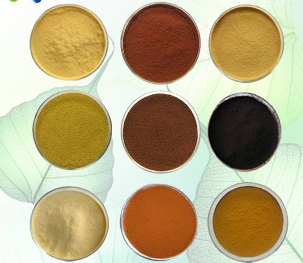What is chitosan oligosaccharide used for?Chitosan oligosaccharide is a natural bioactive carbohydrate polymer derived from chitin, which is found in the shells of crustaceans such as shrimp and crabs. It has a variety of potential uses in different fields, including medicine, agriculture, food industry, and environmental protection.
In medicine, chitosan oligosaccharide is used as a dietary supplement due to its potential health benefits, such as boosting the immune system, improving gut health, and reducing inflammation. It is also being studied for its potential to treat various diseases, such as cancer, diabetes, and obesity.

In agriculture, chitosan oligosaccharide is used as a natural pesticide and fertilizer, as it can enhance plant growth and protect crops from pests and diseases.
In the food industry, chitosan oligosaccharide is used as a food preservative, as it can inhibit the growth of bacteria and fungi and extend the shelf life of food products.
In environmental protection, chitosan oligosaccharide is used to remove pollutants from water and soil, as it can bind to heavy metals and other toxins and prevent them from causing harm to the environment.
Overall, chitosan oligosaccharide has a wide range of potential uses due to its unique properties, and research is ongoing to explore its many applications.
The Benefits of Chitosan Oligosaccharide (COS) in Improving Strawberry Quality and Reducing Disease in Tomatoes
Strawberries and tomatoes are two popular fruits known for their delicious taste and nutritional benefits. However, they are also susceptible to various diseases and pests that can affect their quality and shelf life. Fortunately, chitosan oligosaccharide (COS), a natural and eco-friendly compound derived from chitin, has been found to have numerous benefits for these fruits.
Improving Strawberry Quality
A recent study investigated the effects of pre-harvest treatment with COS on the quality of strawberries. The results showed that COS had a positive effect on the hardness, viscosity, lignin, vitamin C, total phenols, and antioxidant activity of the fruits. Additionally, COS increased the cell wall content and inhibited the expression of genes related to the ethylene signal pathway, thereby reducing the softness of the fruits and increasing their shelf life.
These findings suggest that COS can not only improve the quality of strawberries but also extend their shelf life. Combined with its well-known plant defense induction activity, COS can be used as an eco-friendly and non-toxic alternative to traditional insecticides for fruit crops.
Reducing Tomato Diseases
Another study found that pre-treatment with a 1.0% or 2.5% (w/v) COS solution significantly reduced the size of disease spots on tomato fruits when the plants were inoculated with Colletotrichum gloeosporioides, the fungus that causes anthracnose disease. This suggests that COS can be used as a natural and effective way to control tomato diseases.
Effective Plant Immune Inducer
Chitosan oligosaccharide has been shown to be an effective inducer of plant defense mechanisms. In a recent study, different degrees of polymerization (DP) and acetylation degrees (DDA%) of chitosan oligosaccharides were prepared and characterized using matrix-assisted laser desorption/ionization time-of-flight mass spectrometry. The effects of DP, DDA%, and the concentration of these chitosan oligosaccharides on defense activation in Arabidopsis thaliana suspension cells were studied.
The results showed that fully deacetylated chitosan oligosaccharides (chitosan oligomers) induced phenylalanine ammonia lyase (PAL) activation, H2O2 synthesis, and cell death in Arabidopsis suspension cultures depending on their DP and concentration. The gradual re-acetylation of chitosan oligomers gradually weakened their ability to enhance H2O2 accumulation and cell death but did not affect PAL activation. COS is considered an effective plant immune inducer and has been used in different plants, such as Arabidopsis, tobacco, and grapevine.
Inhibiting Pathogen Growth by Inducing Plant Resistance
Another study used Pectinex Ultra SPL enzyme to degrade chitosan polymers and obtain biologically active derivatives as protective agents for tobacco plants against Phytophthora parasitica var. nicotianae (Ppn). The 24-hour hydrolyzed product showed the highest Ppn antipathogenic activity, and the natural chitosan polymer was less effective than the hydrolyzed derivatives. This suggests that COS can also be used to induce plant resistance and inhibit the growth of pathogens.
In conclusion, chitosan oligosaccharide (COS) has many benefits for improving the quality and shelf life of fruits such as strawberries and tomatoes, controlling diseases, and inducing plant resistance. With its eco-friendly and non-toxic properties, COS can be a promising alternative to traditional pesticides for protecting crops and promoting sustainable agriculture.
